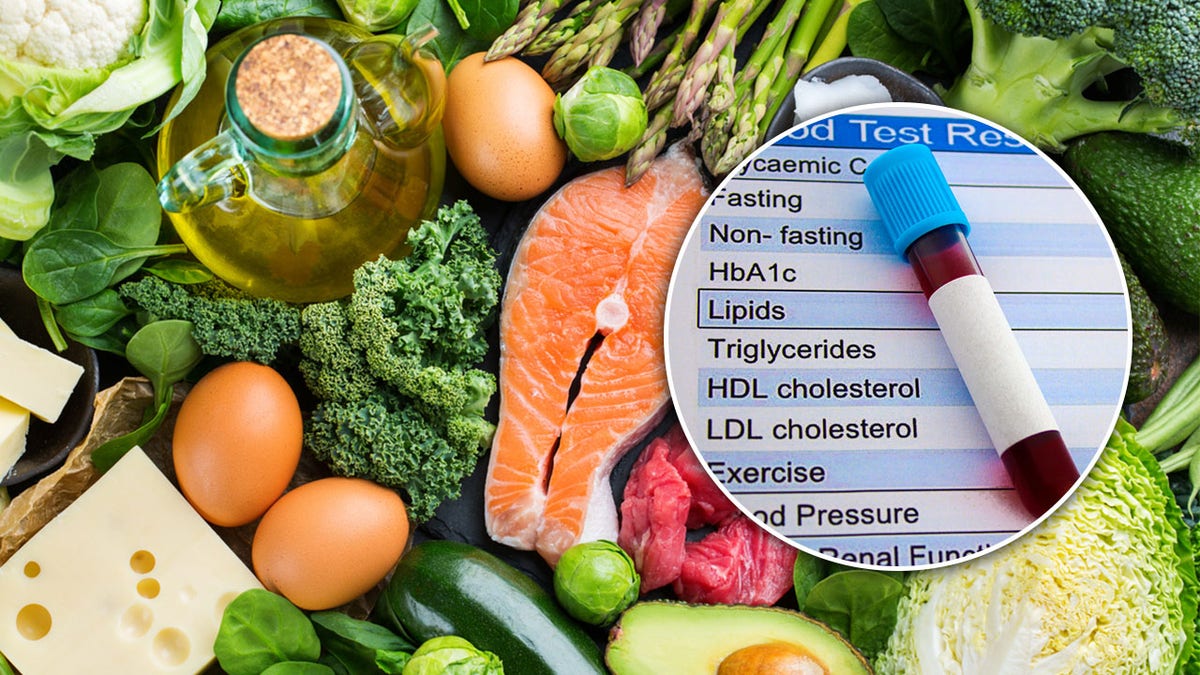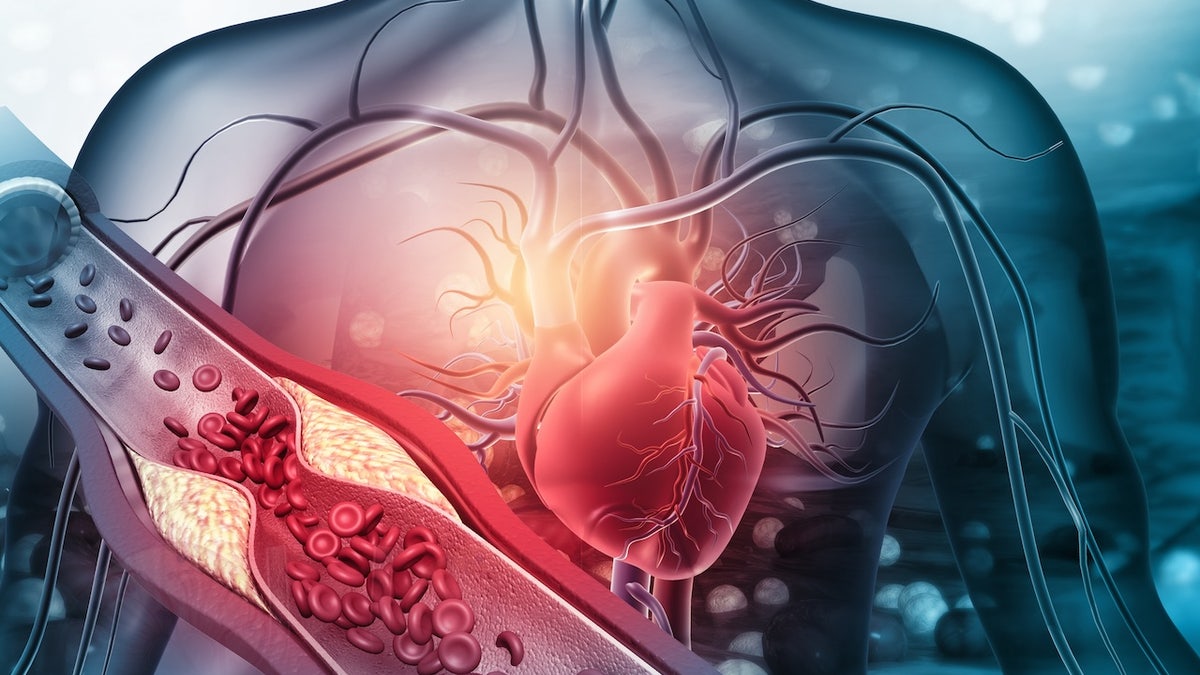Low-carb keto diet may not raise heart disease risk, new study suggests
High cholesterol has long gotten a bad rap for causing poor heart health — but a new study suggests that the low-carb ketogenic diet may not be linked to cardiovascular disease.
The study, led by The Lundquist Institute for Biomedical Innovation at Harbor-UCLA Medical Center in collaboration with researchers across multiple institutes, assessed 100 participants following a long-term keto diet who developed elevated levels of LDL cholesterol (known as the “bad” type).
Other than the elevated cholesterol, all participants were “metabolically healthy” and had followed the key diet for an average of five years, according to an April 7 press release.
HEART DISEASE RISK HIGHER FOR WOMEN WHO HAVE THESE UNHEALTHY LIFESTYLE HABITS
They all qualified as LMHR (lean mass hyper-responder), which indicates people who adopt a carbohydrate-restricted diet and experience a significant rise in cholesterol.

Using advanced cardiac imaging, the researchers found that traditional cholesterol markers (ApoB and LDL-C) were not associated with changes in plaque levels in the heart’s arteries or with baseline heart disease over a one-year period.
Instead, existing plaque levels seemed to be a better predictor of future plaque accumulation.
“This population of people — metabolically healthy with elevated LDL due to being in ketosis — are not automatically at increased cardiac risk simply because their LDL is elevated,” Bret Scher, MD, medical director of Baszucki Group, which provided funding for the study, told Fox News Digital.
‘I’M A HEART SURGEON AND THIS IS WHAT I COOK FOR DINNER’
“Therefore, we should likely shift away from LDL and ApoB and toward vascular imaging with CAC or CTA for better risk prediction and informing how or if to treat someone’s cardiac risk factors,” added the California-based doctor.
The study findings were published in the Journal of the American College of Cardiology: Advances.

Previous studies have also shown that people qualifying as LMHR have similar levels of coronary plaque to otherwise comparable groups that have normal LDL levels, “underscoring that ketogenic diet-induced LDL increases may not indicate a higher risk of coronary plaque,” the researcher said.
Dr. Nick Norwitz, a study leader and independent researcher at the University of Oxford, noted that this is the first study to isolate very high LDL and ApoB as risk factors for heart disease.
“All other human studies have included populations with metabolic dysfunction or individuals with congenital genetic causes of high LDL,” he told Fox News Digital.
8 CARNIVORE DIET MYTHS DEBUNKED BY RESEARCHER
The results seem to contradict what most clinicians would have predicted and what doctors are taught in medical training, according to Norwitz.
“While these data do not prove the conventional understanding is ‘wrong,’ per se, they do suggest the conventional model has a large blind spot.”

According to Norwitz, cardiac imaging, including a CAC score, has “far more value” than cholesterol levels in predicting plaque progression.
“Thus, CAC scores can be used to risk-stratify patients and help individualize care,” he told Fox News Digital.
Scher noted that “ketogenic therapy” can be effective in treating certain metabolic-related conditions, but some people are afraid of continuing a keto diet because of their cholesterol.
“This study provides support that they do not necessarily need to stop the diet or treat their cholesterol — rather, they can work with their healthcare team for a more individualized and appropriate cardiac workup,” he advised.
Raising important questions
Dr. Ken Berry, a family physician and diabetes specialist in Tennessee, was not involved in the research but shared his thoughts on what he described as a “groundbreaking” study.
“The study found no association between LDL-C, ApoB and progression of coronary plaque over one year using high-resolution CT angiography,” he said to Fox News Digital.
“Instead, the strongest predictor of plaque progression was pre-existing plaque, not cholesterol levels — leading researchers to conclude that ‘plaque begets plaque, ApoB does not.’”

This is the first prospective trial of its kind in a unique population often labeled ‘high-risk’ by traditional guidelines, Berry said, raising important questions about how cardiovascular risk is assessed in the context of low-carb, high-fat diets.
“The obvious implication is that if very high ApoB levels is not a good predictor of heart attack risk in this specific group of people, then is it a good predictor in any group of people?” he said.
“Or is it, as I suspect, just the latest popular lab test being used to scare people away from eating a proper human diet rich in saturated fat?”
Potential study limitations
Dr. Bradley Serwer, a cardiologist and chief medical officer at VitalSolution, a Cincinnati-based company that offers cardiovascular and anesthesiology services to hospitals nationwide, reviewed the study and pointed out some potential limitations.
“The study’s limited scope, involving a low-risk population over a short duration, renders it challenging to generalize findings to a broader, more vulnerable population,” Serwer told Fox News Digital.
HARVARD MEDICAL STUDENT ATE 720 EGGS IN A MONTH, THEN SHARED THE ‘FASCINATING’ RESULTS
“While the study’s objective was to propose a hypothesis regarding dietary cholesterol’s role, it does not provide definitive evidence for or against its significance.”
The cardiologist does, however, agree with the authors’ conclusions that “improved risk stratification tools” are essential for identifying individuals at higher risk of coronary artery disease.

“As physicians, our primary responsibility lies in evaluating each patient on an individual basis and collaborating with them through shared decision-making to develop the most appropriate long-term care plan,” he added.
CLICK HERE TO GET THE FOX NEWS APP
Michelle Routhenstein, a New York City registered dietitian who specializes in heart disease, noted that plaque formation is a multistep process that can take years to progress.
“The environment of the artery needs to be conducive to plaque formation,” Routhenstein, who was not part of the study, told Fox News Digital.
“This is a remarkable group of humans demonstrating remarkable physiology.”
“For example, individuals with high blood pressure, a subgroup that was excluded from the study, are more prone to endothelial damage that can cause apoB to deposit more readily in the artery wall.”
“If someone already has plaque in the arteries and sustains an elevated level of LDL and apoB, then it can develop into more plaque, as seen in this study.”
CLICK HERE TO SIGN UP FOR OUR HEALTH NEWSLETTER
“However, if someone is metabolically healthy, has no plaque at baseline, and has elevated apoB and LDL levels alone, then the environment may not necessarily cause plaque to form over a one-year period.”
Routhenstein pointed to prior research showing that high LDL and apoB over years of someone’s life, typically coupled with inflammation, insulin resistance and/or oxidative stress, can increase the risk of plaque development.

“It is important to note that many people who are implementing a ketogenic diet and are ignoring high LDL and apoB levels typically do not know they have soft plaque brewing,” she added.
“Therefore, advising them to ignore LDL and apoB levels can be harmful — especially in a world where heart disease is so prevalent and remains the leading cause of death globally.”
Looking ahead
Scher said he hopes that more researchers will become inspired to further this study and apply it to different populations.
“But for now, I hope doctors will embrace this research and treat this specific population of people differently from the rest of their patients, understanding the unique physiologic state of ketosis and the metabolic benefits it provides,” he said.
For more Health articles, visit www.foxnews.com/health
In addition to more studies assessing risk in this population, Norwitz said the team hopes to further investigate the mechanisms of the lean mass hyper-responder (LMHR) phenotype.
“This is a remarkable group of humans demonstrating remarkable physiology,” he added.
